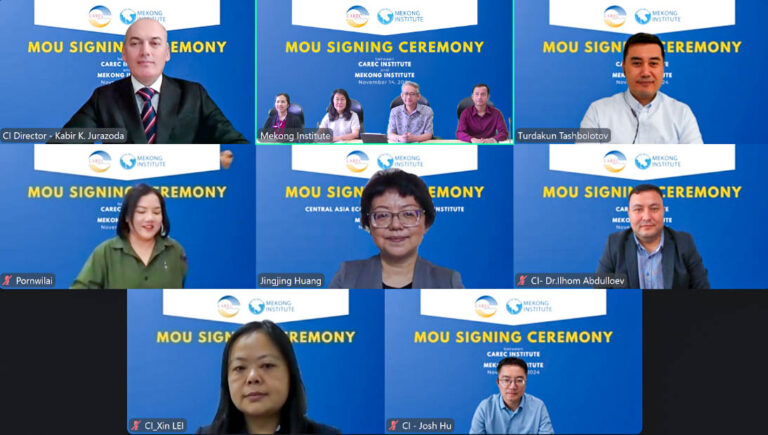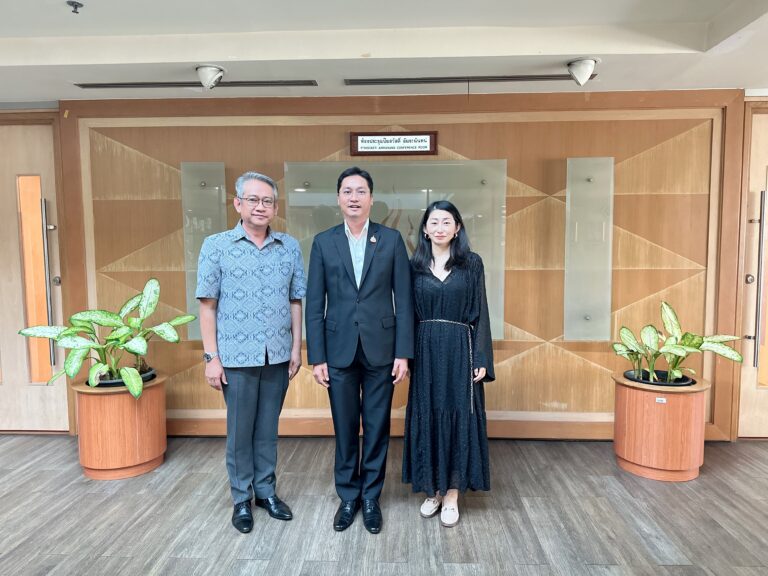Khon Kaen, Thailand – The Mekong Institute (MI), in collaboration with China Southern Power Grid Lancang-Mekong International Co., Ltd. (CSG-LMI), hosted the Regional Workshop on Promoting Effective Corporate Governance for Power Enterprises on November 15, 2024. The event attracted over 37 participants from Cambodia, China, Lao PDR, Myanmar, Thailand, and Viet Nam, representing government agencies, power enterprises, and research institutions.
The workshop focused on addressing corporate governance challenges and exploring strategies for sustainable energy development in the region. By fostering cross-border cooperation and knowledge sharing, the event highlighted the vital role of effective governance frameworks in facilitating the transition to renewable energy sources.
Mr. Suriyan Vichitlekarn, Executive Director of MI, opened the workshop by discussing the dual challenges of meeting rising energy demands while achieving climate goals. He emphasized that corporate governance is crucial for promoting transparency, accountability, and sustainability within power enterprises.
Mr. Cai Baorui, President of CSG-LMI, in his remarks, underscored the importance of collaboration among regional partners to tackle the complex challenges faced by power enterprises.
In her keynote address, Ms. Yejin Ha, Economic Affairs Officer at UNESCAP, explained how effective corporate governance can drive renewable energy transitions, enhance stakeholder engagement, and attract green investments. Her insights provided a broader understanding of governance’s impact on sustainable energy development.
Ms. Jian Wang, Program Manager at MI’s Sustainable Energy and Environment Department, facilitated a session where representatives from the six participating countries shared insights into their governance frameworks, renewable energy policies, and sector challenges. These presentations demonstrated regional progress and underscored the need for collaborative solutions.
In an afternoon session moderated by Mr. Suriyan Vichitlekarn, participants discussed strategies to achieve renewable energy targets through joint ventures, investment promotion, and public-private partnerships.
Overall, the workshop successfully facilitated discussions on overcoming governance challenges while promoting sustainable energy practices across the Lancang-Mekong region. The event reinforced the importance of collaboration and knowledge sharing in achieving shared energy objectives among member countries.








